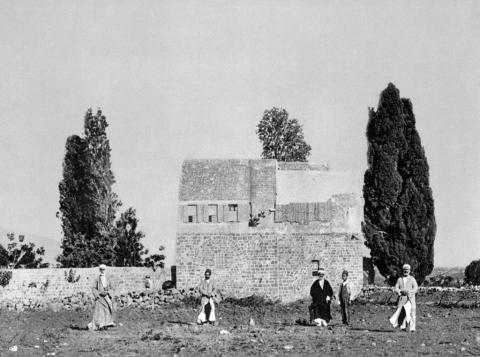One of the most important pioneer families in the Fort Worth / Dallas area ws the Dobbins family. While Nancy (the mother of the community) passed away a number of years ago, Gordon (whose grandfather was brought into the Faith by ‘Abdu’l-Bahá back in 1912) was with us until just a few months ago.
For decades their home was the main gathering spot in Fort Worth and literally scores of people became Bahá’ís in their home. This included dozens of youth, such as myself.
One evening Gordon was giving a fireside, during which he spoke of the suffering of Bahá’u’lláh, including His near fatal imprisonment in the siyyah chal ("black pit") of Tehran. Afterwards I, a young Bahá’í, was eager to hear more, so he sat down and told me a story.
Gordon was a very tall and physically imposing figure who had an IQ that was off the scale and he spoke in careful, measured tones. I settled in, ready to hear something truly enlightening and fascinating.
He began by describing how the Bahá’ís (then known as Bábís) would try to keep their spirits up, despite being chained to the floor of what was essentially a pitch black sewer. They would recite prayers and sing and it would be a great comfort, even after Bahá’u’lláh was taken away and banished to Baghdad.
According to Gordon, they would also tell jokes. Unfortunately they didn't know very many, so they kept telling the same jokes over and over. After a while this became somewhat tedious, so they decided to simply give each joke a number. When someone would call out a number, the others would remember the joke and laugh.
One day a new fellow was brought down into the pit. The others would sing and recite prayers, but then at one point someone said, "Fourteen!" and everyone laughed hysterically. This continued day after day: Every once in a while someone would call out, "Three!" or "eleven!" or some other number and they would laugh and laugh. The new guy didn't understand any of this, but he wanted to be sociable, so after a lengthy period of silence he called out, "One hundred and seven!"
At first there was silence, but then one prisoner laughed and then another, and before long everyone was laughing so hard they could barely breathe. It took several minutes before everyone recovered their composure.
After this display, the fellow finally gives up. "Alright," he says, "What on earth is so funny?"
The prisoner next to him smiled and said, "We have never heard that one before."
And that, delivered via the measured tones and from the stony visage of Gordon Dobbins, was my first informal introduction to Bahá’í history.
